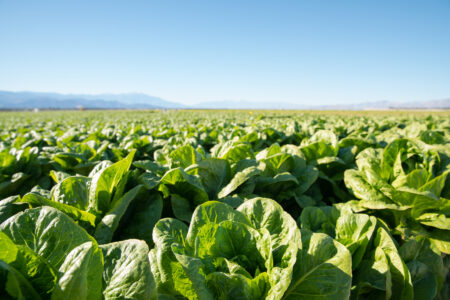Is “USDA Organic” really organic? The Real Organic Project supports farmers who say the “Certified Organic” definition should prioritize soil health and sustainable farming methods.
Navigating food labels can be confusing, as we strive to purchase safe, healthy products that don’t destroy the land or harm the animals and people living on it. Here, Hugh Kent, a farmer and advocate for the Real Organic Project, offers yet another angle on labeling laws, plus an alternative consumers may find appealing. — Mother
Is “USDA Organic” Really Organic?
Many of us who want good, healthy food look at labels in hopes they’ll help us evaluate our food and its quality. We’ve turned with hope to terms like “all-natural,” “sustainable,” and, lately, “regenerative,” but none of these has an established or consistent meaning. In the U.S., the word “organic” stands alone as a term defined by law. “Certified Organic” can only be used if the product complies with the law (which emphasizes the enhancement of soil quality as its foundational principle).
Despite this, in recent years, the USDA has allowed hydroponic farming systems to be labeled as “USDA Certified Organic” — with no distinction from soil-grown “USDA Certified Organic.” These hydroponic crops are grown in containers, and they derive their nutrition from a liquid feed. Virtually no other country on Earth allows these soil-less, hydroponic systems to be labeled as organic.
Intended or not, current USDA organic policy is doing more than just allowing hydroponics. It’s effectively eliminating many soil-grown Certified Organic products from the marketplace in favor of “replacements” grown without soil on an industrial scale.
“Certified Organic” Definition and Hydroponics
As a soil-based, organic blueberry farmer, I’ve watched this rapid shift to soil-less systems. Hydroponic blueberries are commonly grown in plastic bags or plastic pots filled with an inert, lifeless substrate, such as coconut coir. I suspect only a small percentage of consumers know this is happening, as “organic” hydroponic container growers aren’t currently required to disclose that they’re hydroponic.
After a significant initial investment of capital (something industrial-scale agribusinesses have readily available), soil-less systems are cheaper to operate, with many of the costs of production shifted or hidden. The typical soil-less system’s use of plastic ground cover, plastic pots, and inert substrates ignores soil health and treats the land as merely a surface to be leveled, compacted, and covered with plastic containers. As containerized plants become root-bound, the installation is typically disposed of within a few years. The plastic remnants go to landfills. In the meantime, rainwater that falls on these “farms” often runs off or leaches plastic byproducts into the soil.
There are also significant nutritional differences between soil-based systems and hydroponic ones. Our digestive systems evolved right along with food grown in the Earth’s soil. These new soil-less systems of nutrition were invented by humans, challenging the wisdom of hundreds of thousands of years of coevolution. So shouldn’t we be allowed to know whether our “Certified Organic” food is soil-grown or not, and make our own choices? By its actions and policies, the USDA “Certified Organic” defintion says no.
Most recently, the USDA has identified the crucial role of soil stewardship in addressing climate change. Ironically, the USDA is simultaneously eliminating soil stewardship (and soil itself) from many USDA Certified Organic farming systems.
Real Organic Project

In response, the farmers who started the organic movement in the U.S. have formed the Real Organic Project (ROP). This label protects the integrity of organic foods. In just a couple of years, more than 1,000 farms have joined, with more certifications in process. Please look for this label to support their efforts — and to ensure you’re getting real organic food. If you’re an organic farmer, consider applying for Real Organic Project certification, and if you’re an eater who knows an organic farmer, speak with them about the opportunity. In whatever way you can, please support the Real Organic Project. To learn more, visit Real Organic Project.
Hugh Kent and his wife, Lisa, own and operate King Grove Organic Farm in Florida, where they grow ROP-certified organic blueberries.




